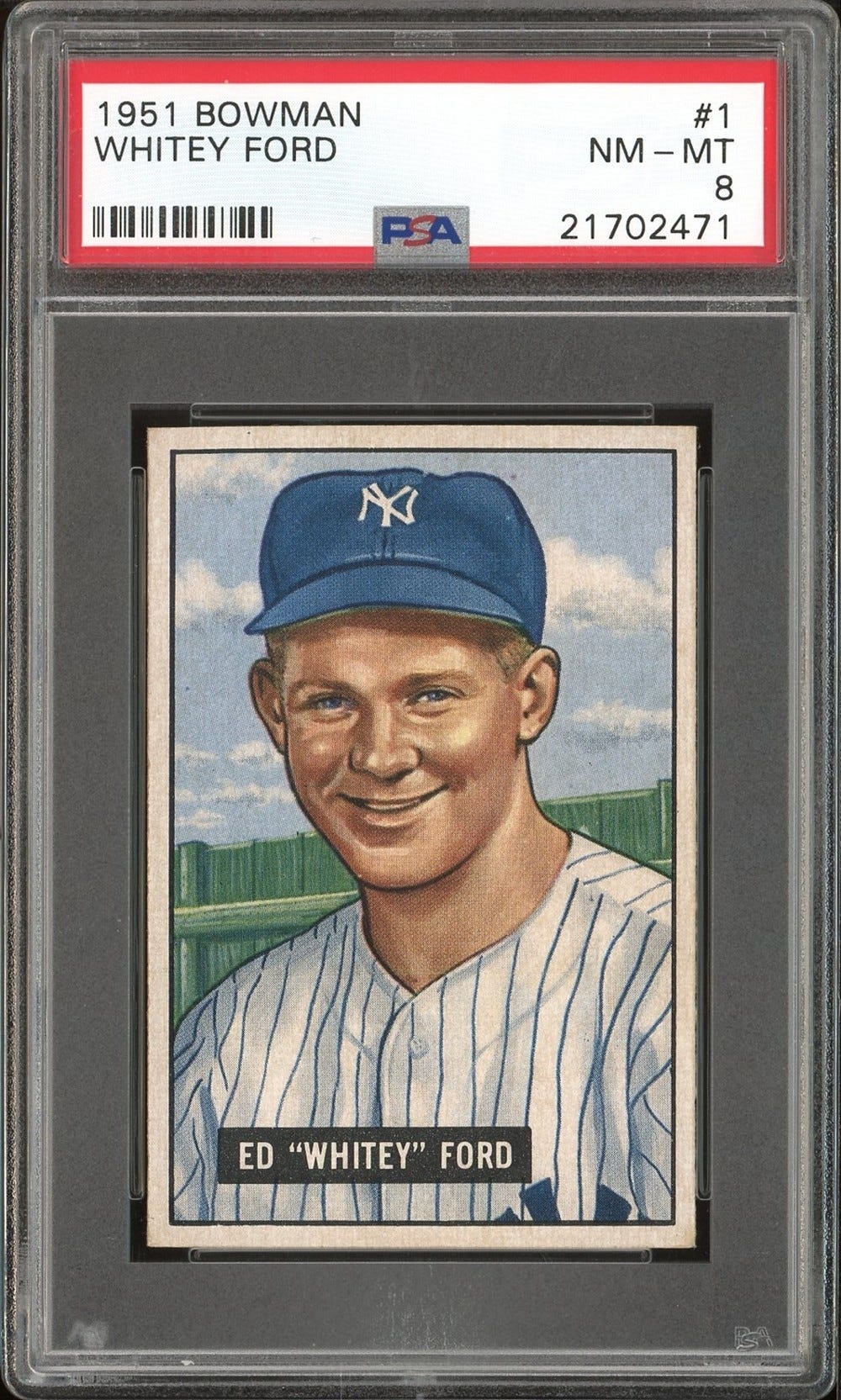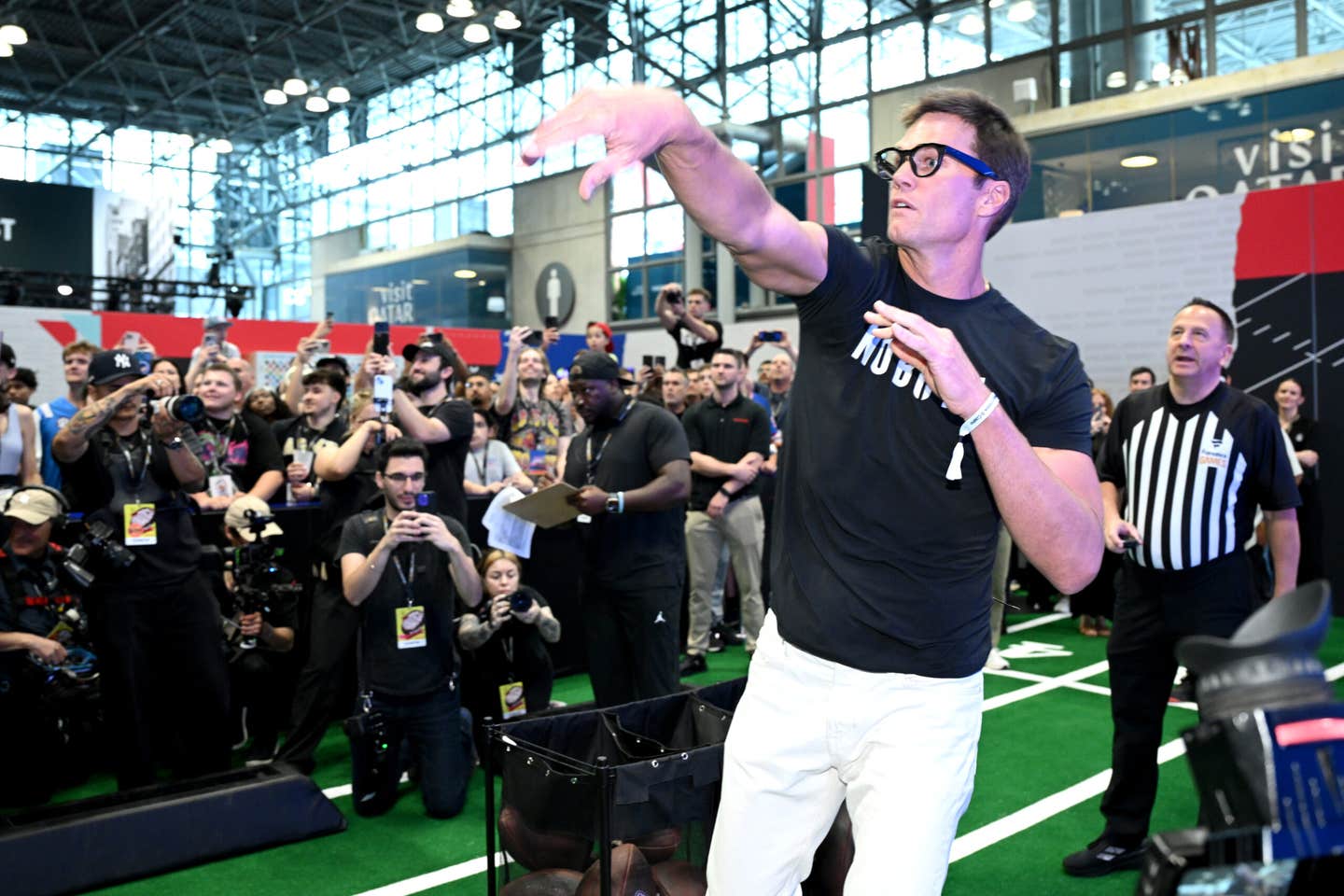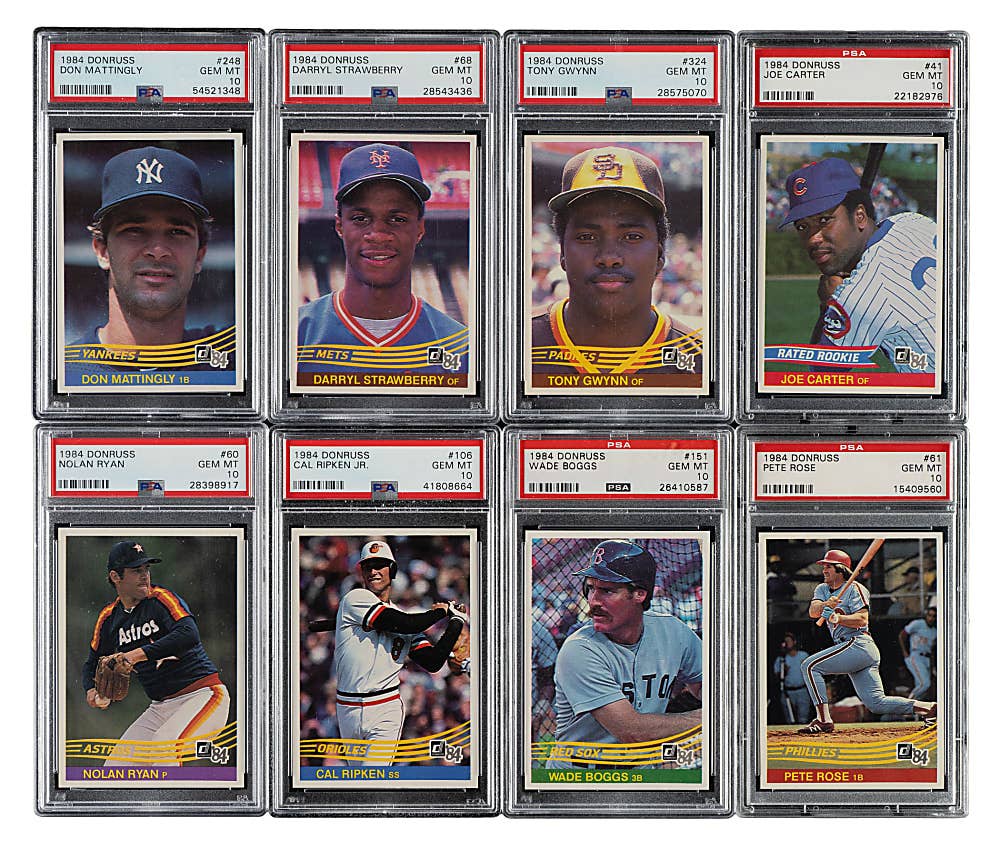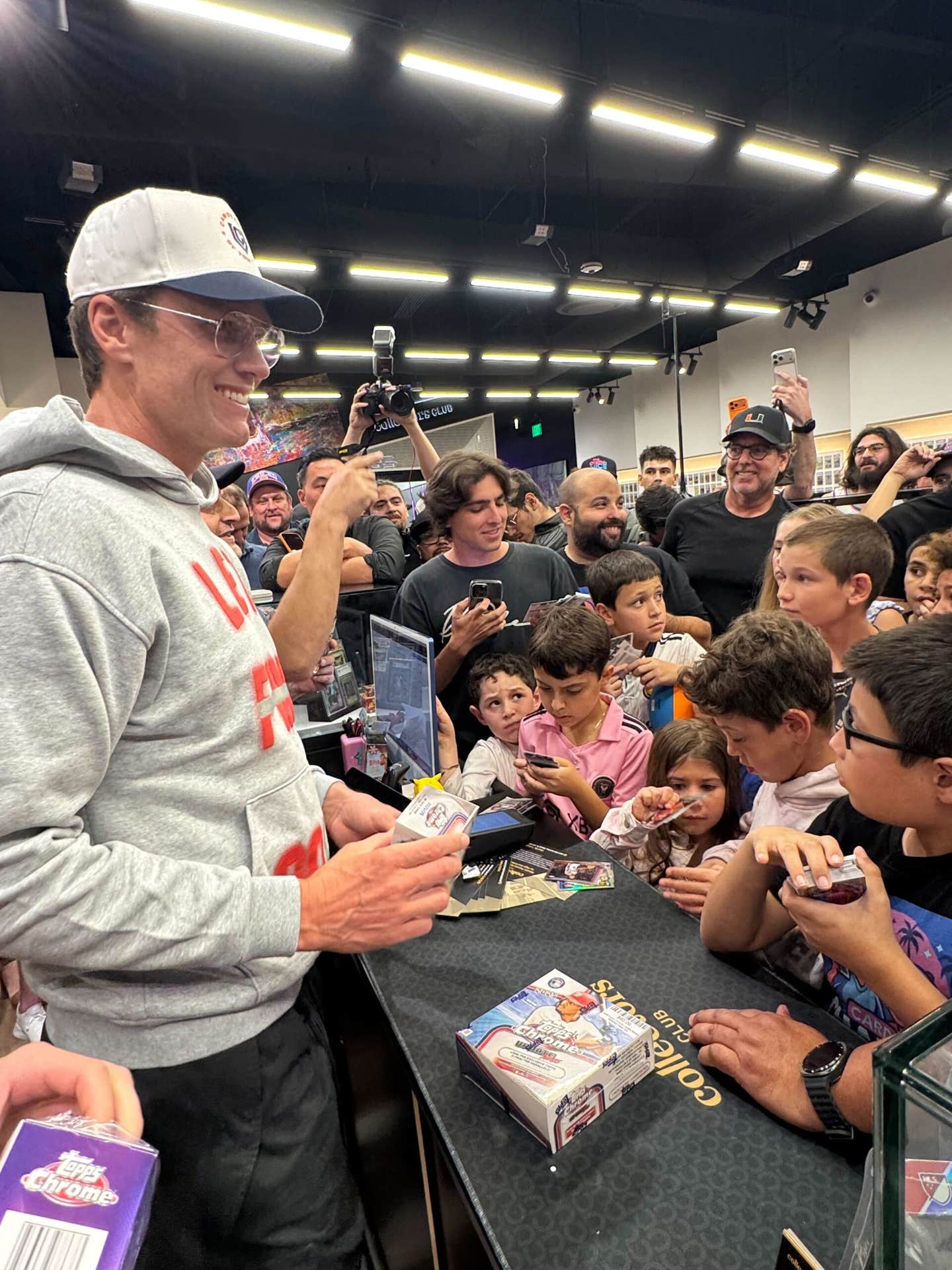News
Industry Spotlight: James Spence
Any business is only as good as its reputation. So perhaps it’s no surprise that James Spence Authentication (JSA) is doing very well these days.
When it comes to third-party authenticators for autographs, JSA’s reputation is arguably the most trusted within the hobby. His services are utilized by virtually every major auction house and autograph dealer in the country. Buyers view his letters of authenticity as the equivalent of the Good Housekeeping Seal of Approval.
The field of autograph authentication is still relatively young, but very competitive. Spence was one of the first to jump into the field and one of the first individuals to turn it into a full-time career.
Being one of the most successful authenticators also means he is one of the most scrutinized. Like all authenticators, Spence will be the first to admit his company has made mistakes over the years. Those mistakes are fodder for his critics and competitors.
But Spence will put his knowledge and reputation up against anyone else’s in the hobby, and even his critics can’t deny those qualities carry a tremendous amount of weight within the autograph field.
So how did Spence make the transition from rabid autograph collector to successful dealer to an even more successful authenticator? He told us about that and more in a recent interview.
SCD: How did you turn an interest in autographs into a career as an authenticator?
Spence: My father, grandfather and brothers were all collectors. That’s where I gained a love, interest and eventually a passion for what I’m doing now. I used to write to a number of players asking for autographs. I would go to ballparks as a youngster to get autographs from as many players as possible.
Over time, my collection got bigger. I’d want to get other things I couldn’t afford, so I would trade or sell of some things. After buying and selling for a few years, I could see there was a great need for authentication. It was a wild west out there.
There had been other unsuccessful attempts to start authentication services, and I started doing some work for auction houses. Then I was approached by Collectors Universe and worked there for six years as they started PSA/DNA. I finished my contract with them four years ago and started JSA.
From what I can see, we are probably the No. 1 authentication company out there. I believe we’ve surpassed PSA in terms of revenue and profitability. We have seven authenticators on staff, versus their three. I guess we’ve overwhelmed them.
SCD: When did you stop being a dealer and become a full-time authenticator?
Spence: When I went to PSA, they had me do both (authenticate and sell) because there wasn’t enough business out there yet to make a living just authenticating. This is the problem the bat and uniform authenticators have. There is not enough business to make a living just authenticating. So I had to buy and sell and do the authentication, which wasn’t the best scenario, but it was the only way to get it off the ground.
After I was there about three years, the demand for authentication went nuts and I could do that full time. That’s when I stopped selling.
I’m still a collector. I’m not voracious about it, but if something catches my eye and it’s still obtainable, I’ll buy it. But the difference is I don’t sell. I don’t want to compete with my customers or let that get in the way of what I’m doing.
SCD: Is how you authenticate different today than from when you first started?
Spence: The No. 1 thing I rely upon is my experience. That’s head and shoulders above everything else. I do have a certificate in Forensic Document Examination, but that makes up such a small portion compared to the wealth of knowledge I’ve gained over the years from talking to collectors, family members of the athletes, reading about their habits. I’ve educated myself and I’m still learning.
Once you’ve gained that knowledge, word gets around. Not only do collectors and dealers regard your LOA as being a marketable device, but when the auction companies accept it, you’ve become universally accepted.
If there are 20 major auction houses out there, I work for at least 18 of them. We’ve come into our own because of that, and that’s very important for how we’re viewed in the hobby. Under every big auction lot description, it often says “LOA from Spence.” What better advertising do you need?
SCD: Are there some misconceptions about how authentication works?
Spence: I don’t think people understand the process of what’s involved when an item comes into our office. Just because I think an item is real doesn’t mean it’s going to get a letter. We have seven authenticators who sign off on a scoring system. We have to have a consensus. If they don’t see eye to eye, it will either be inconclusive or rejected if everyone agrees the other way. We can also reach out to one of the 50-some consultants we have around the industry who are considered experts of their areas of special interest. It’s a great network to have.
SCD: There are some people, even other authenticators, who seem to devote a lot of time to bashing you or others in your field. Does that bother you?
Spence: I’ve developed pretty thick skin. I never have a problem with someone questioning my expertise or knowledge on a subject. I’ll discuss things with them on a civil basis. What I can’t tolerate is someone questioning my integrity. If I make a mistake, it’s going to be an honest one. I can deal with that, it’s part of the process, but I’m constantly learning. I wouldn’t take it too well if somebody said you passed that item because you’re buddies with him or you’re profiting from it. That’s when the gloves would come off.
SCD: No matter how many items you get right, you’re sometimes judged more by the calls you got wrong, even if it’s a low percentage. Is that just the nature of the business?
Spence: It’s how you deal with these things when they come up and not ignore them. You try the best way to get through it with professional customer service. That’s why we’re succeeding and we don’t disregard constructive criticism.
It’s also why we always strive to get better. You can never be too educated. There hasn’t been anybody to come along that has the database that we have. I have a quarter of a million examples dated in chronological order. These are files that we keep building on day after day.
SCD: Are you still seeing items on the market from the forgers that were convicted as part of the FBI’s Operation Bullpen?
Spence: That stuff still comes in on a daily basis. In a sad sense, it’s profitable for us to knock this stuff down. When it gets back into the hands of some collectors, they might not destroy it or be able to get their money back, so they might try to pass it along to another unsuspecting party. I can’t put a big X through the signature. I wouldn’t want to have to deal with the legal issues that would come with that. Those items will always be out there, because I don’t know of anybody having this big bonfire where they’re putting all this bad stuff.
SCD: Are you surprised anymore by anything you see in terms of forgeries?
Spence: I don’t think there’s any level that hasn’t been hit. We saw a bad Bob Feller autograph recently. Who would have thought that? We receive, on a daily basis, items that indicate just how bad it is out there. Whatever can be sold in bulk or where people can make money, you’ll find problems.
SCD: Any new tricks by the forgers?
Spence: Nothing is sacred. In every end of this hobby, there’s deceit. Now I’m seeing forged LOAs supposedly coming from family members of athletes or umpires to give an item provenance. The forgers are intelligent people who are trying to pull one over on the public. You have to be on your toes for that. We’re also seeing people taking big collections with good items and salting in some bad stuff to increase its value.
SCD: Is the career of an authenticator what you thought it would be?
Spence: I’m very blessed, and this is going so, so well. It’s very busy in the office, but I’m also on a plane every week visiting an auction house or other dealers and collectors.
I think I’ve done things right. In the position I’ve been in, there’s a lot of power involved. As long as you don’t misuse that power or get a big head over it, this is going to continue to be a very good business. If people need to sell their stuff, they have to get it authenticated if they want to get the value out of it. We don’t make a big hit on any one item, but it’s nice to know we provide a valued service.
SCD: Do you think the people who were philosophically opposed to the notion of a third party giving their item their blessing are now more accepting of services like yours?
Spence: I’ve known some people for more than 20 years who always relied on nothing more than their great reputation to sell items. But now as they look to use the Internet as a sales tool, they’re realizing that if they want to sell to someone halfway around the country who doesn’t know anything about their company, they’re reaching out to us because customers recognize our name in the authentication business.
SCD: Where do you see your company going in the near future?
Spence: For the last two years, my son James has been working for me. This is a future for him and the other people who are seeking a career in this. So I have no intention of selling the company.
If we can parlay our success into other collectibles and other items we can authenticate, that’s the future of the company. If we had the right people on staff, we could authenticate items like Barbie dolls or Corvettes, just as examples.
People want to know if something is real before they buy it. They want that pedigree to accompany the item from generation to generation, or if they decide they want to sell.
We’re extremely busy right now, but if the right opportunities came along, I could see us expanding into other areas that are not related to sports at all.








